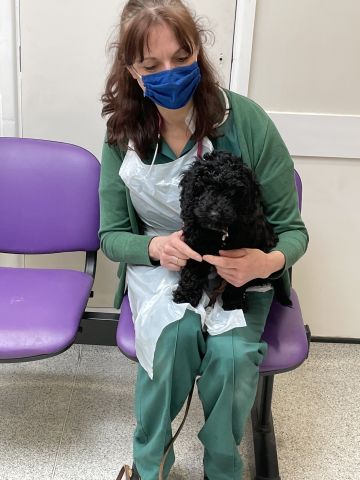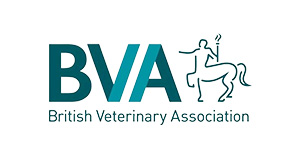Pet Vaccinations: Why They’re Important & What Diseases They Protect Against
Published on: Jan 23, 2021
We have all felt and experienced the effects that a virus can have, and how quickly it can spread through an unvaccinated population. Since we started vaccinating our animals routinely, we no longer see certain diseases very often, and some we have even eradicated, for example rabies. A lot of these diseases can be fatal, and even the best intensive care isn’t enough to save them. So, what do we actually vaccinate against? For out pet dogs the core vaccinations are against Canine Distemper, Canine Parvovirus, Infectious hepatitis (also known as adenovirus), and Leptospirosis. Another recommended vaccination for dogs is against ‘Kennel Cough’, which is mostly caused by Bordetella Bronchiseptica and Canine Parainfluenza virus. For our pet cats the core vaccinations are against Feline enteritis, Calici virus, Herpes virus and Feline Leukaemia. And last but definitely not least, our pet rabbits who also should be vaccinated yearly against Myxomatosis, and both strains of Rabbit Haemorrhagic disease.
We should routinely vaccinate our pets – the main reason being to prevent, or at least severely decrease symptoms of, very nasty diseases. But there are other important reasons which are not as widely known. For example, Leptospirosis in dogs is called a ‘zoonotic’ disease – this means that it can be passed between dogs to humans and therefore vaccinating your dog will also protect you and your family. Another key reason to vaccinate is that some diseases such as Canine Distemper, circulate in our wildlife populations. Foxes and ferrets can carry Distemper, and although your dog may not have direct contact with these animals they may still come into contact with the virus within the environment. This is also the case with vaccinating our pet cats and rabbits – there is a large unvaccinated cat and rabbit population in this country which keeps these viruses circulating.
There is a relatively new concept of titre testing. Titre testing is measuring the number of circulating antibodies in the blood to a certain virus. Titre testing can be a useful tool when used appropriately to decide when we need to boost our pet’s immunity with vaccinations. Currently we vaccinate our dogs yearly for leptospirosis, and every 3 years for Distemper, Parvovirus and Infectious hepatitis. It is important to note that we cannot titre test for leptospirosis – this means that we cannot measure the circulating antibodies for leptospirosis in our dogs and therefore we do not know their level of immunity. This makes it extremely important to keep up to date with their vaccinations. We can titre test for Distemper, Parvovirus and Infectious Hepatitis. The biggest problem we face at the moment with titre testing is knowing how long the immunity will last. Immunity varies between individuals, and so just because one dog may have adequate immunity after 3 years, does not mean that your dog will. Also, when the immunity does start to wane, we do not know if that will take 3, 6 or 12 months, and so going down the route of titre testing means ideally you need to be testing at regular intervals.
So, if you think your pet is due a vaccination or you have any questions, please do get in touch and we will be happy to help!

pet vaccination | puppy vaccination | kitten vaccination | rabbit vaccination | importance of pet vaccines | pet vaccine schedule | distemper | parvovirus | leptospirosis | feline leukaemia | myxomatosis | zoonotic disease | titre testing | pet boosters | Shepton and Wells Vets
Caring for your pet as we do our own

At Shepton and Wells Vets, we understand what your pets mean to you, and so our Pets team aim to care for each and every one of them as we would do our own.
We care about your pet
Our primary focus is keeping them fit, happy and healthy with comprehensive and effective preventative healthcare, advice and treatment.
We care about you
We aim to communicate clearly and honestly with you, and discuss different treatment options so that you can make the right informed choices for you and your pet.
We care about clinical excellence
We take pride in providing a high level of medical and surgical care, working together as a team to do the very best we can for your pet.











